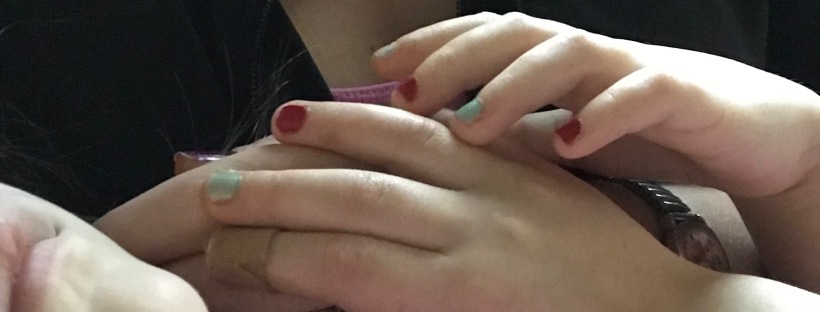August 30, 2021
My Dear Ones,
Now we are six. And what a six! Maya has burst onto our scene in the middle of a pandemic, in the middle of a move. She’s changed the game for sure. It’s your first day of school for the fall (and I expect it’s our last first day of homeschool for several years) and I’ve arrived in a state of complete disarray. I want to feel excited. I want to care enough to make it magical. But I have no energy left.
Energy is something I’ve got in spades, isn’t it? Energy and grit and capacity and good ideas. Behind us are ten years as a family full-to-bursting of beauty and growth. They’re full of folly too, and when I came here to write I found the Christmas letter from 2017. It’s the same tale I was coming to tell you here: I love you, I want to lay it all down, I can’t make it all perfect, Please forgive me for trying.
These four years have been worse than puppet theaters, vespers recitals, and generational anxiety. Sweet babies, these four years have made me crave those simpler challenges. It’s all been quite literally too much. But this is the mercy I’ve needed, because I can no longer haul my way through current demands to arrive at moments of crafted happiness with you. The current demands aren’t going away. They haven’t, no matter how I’ve tried to shoulder them, to lift them off of us like a boulder.
Instead it’s time to choose to stop. To sit. To rest. To love. This is what I’m learning in the school of sheer exhaustion. As I’m coming to understand Seurat’s problem as my own–“Look, I made a hat, where there never was a hat”–coming to recognize that I’m balancing “Children & Art” even though They advise against it–I’m beginning to see the visionary strengths I possess are in tension with love. They are even a danger to it.
I do not love the ideals of you. I do not love the images in my head of us homeschooling. I do not love the dreams I have of being with you. I will not love these: I will love you. Mary has patterned submission for us; I was learning that four years ago. But the submission she has patterned is a submission to love, and this is what I’m learning now. I’m learning it through Maya, because never has there been such a bumper-crop of love amongst us. The way you dote on her is stupifying. I just never knew there could be so much love. The way I feel as I lay her back in bed after a fifth night waking is stupifying. She’s my hard baby. Her needs and demands are unpredictable and frustrating, and I’m exhausted. But I never knew there could be so much love. And there was nothing else in the world our family needed to welcome amongst us but love.
Today as we begin, I pray love for us. I pray you feel my love in my presence. I pray you feel my love in acquiescence and acceptance. In my leaving the goals. In the unhung prayer wall artwork. In the way I accept this unfinished house we are still trying to fit ourselves into. I pray you find love, too: love for your work and love for yourselves. I see you needing both those things and I hope to keep my eyes on those objectives rather than becoming distracted by the scenes from my imagination which I feel an urge to conjure. Conjuring my imagination: this is a good description for how I live, and for how I’ve made the world for you. I’m proud of this, truly, and the proof has been in your delight. But the dark side of that moon is your stress and mine. And now at the end of two years of adrenaline, I cannot subject us to stress any longer. I cannot, I cannot, I cannot.
So I am choosing to stop. To be present to moments of utterly uncomplicated reality–to books and lessons and smiles and struggles however we encounter them. I am so desperate to be in your company and to be at rest. For me, this fall, love is shutting my ears every day to the song of the hat. Sure, I am forever an artist, and I will make beauty this fall. But I will not make myself or you wait for love while the beauty is unfinished.
I love you.

Love,
Mommy
(The literary references are to Sondheim’s musical “Sunday in the Park with George” and that beloved-if-overly-optimistic little piece of children’s literature called “The Little Engine That Could.”)



